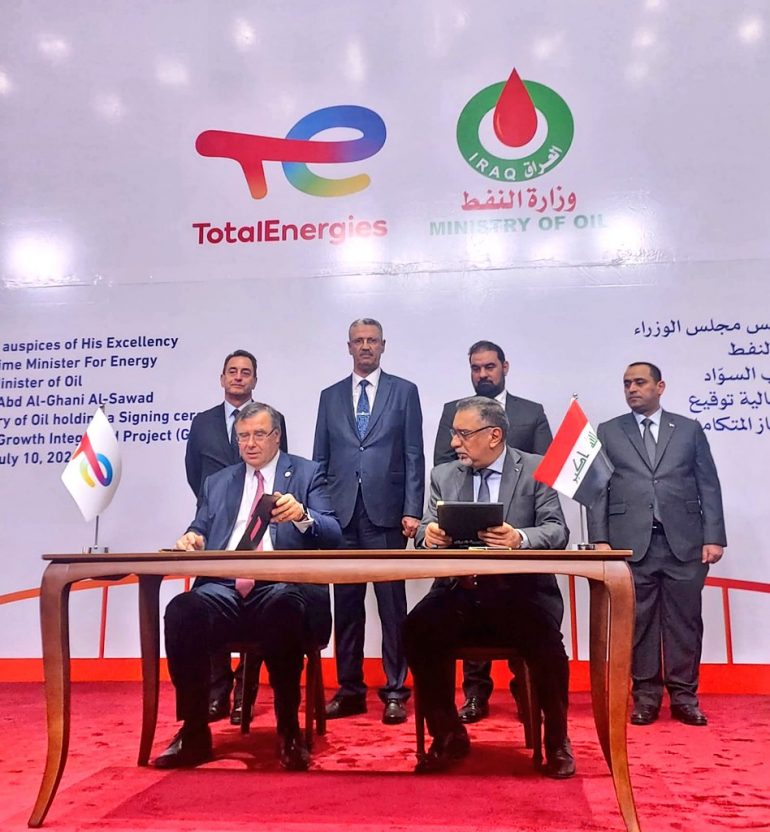Iraq has inked agreements with TotalEnergies for a suite of projects worth $10 billion, concluding a deal that has been years in the making.
The aim is to enhance the country’s electricity supply via the capture of flared gas and solar power utilization. The deal was initially revealed in 2021 but faced postponement due to disputes over its terms.
The accord was signed in a ceremony held at Iraq’s Ministry of Oil headquarters in Baghdad. The signatories were TotalEnergies CEO Patrick Pouyanne and Iraq’s Oil Minister Hayan Abdel Ghani, following extensive negotiations.
In a speech preceding the signing for the four projects, Abdel Ghani said, “Today, we commit with Total and all partners to serious and fruitful cooperation to begin implementing these contracts in the field.”
“TotalEnergies will retain 45 percent of the project, Basrah Oil Company 30 percent, and QatarEnergy will join us with 25 percent,” Pouyanne told AFP.
Bassem Khdeir, an Iraqi oil official, told AFP, “In one month, the concrete steps will begin on the ground, including infrastructure construction,” adding that “in three years, the projects will bear fruit.”
The first component of the $10 billion Gas Growth Integrated Project (GGIP) aims to reclaim flared gas from oil fields to fuel electricity-generation plants.
Aside from bolstering Iraq’s electricity supply, the GGIP is designed to alleviate the country’s dependence on imported energy resources.
The plan includes the establishment of a one-gigawatt solar plant to supply power to the Basra regional grid. TotalEnergies has extended an invitation to ACWA Power, a Saudi-based company, to be part of the ambitious plan of constructing a 1 GW solar power plant.
Given the project’s scope and potential impact, it’s likely to serve as a catalyst for attracting additional foreign investment into Iraq’s energy sector.
The GGIP envisions the construction of a seawater treatment plant to source water used in oil production — presenting an alternative to using freshwater from rivers and aquifers. This comes as Iraq faces an unprecedented water crisis.
Officials at the ceremony mentioned that the project would ultimately yield five million barrels of water per day.
Pouyanne announced to AFP that work would initiate on the ground over the summer.
Under this agreement, plans are in place to expand the oil production capacity of Basra’s Ratawi field. The aim is to raise output to 120,000 barrels per day (bpd) within two years, further increasing to 210,000 bpd over the next four years.
“The first phase of the solar plant will come in two years, and then we will work to implement a first phase on the oil field, which should increase production to 120,000 barrels per day within two years as well,” he further added.
Pouyanne projected the entire set of projects to be completed by 2027-2028, placing the total cost at over $10 billion.
When the Iraq-TotalEnergies deal was first disclosed in September 2021, Iraq referenced a $27 billion project, a figure which took into account prospective operating costs over the years.
AFP contributed to this report


